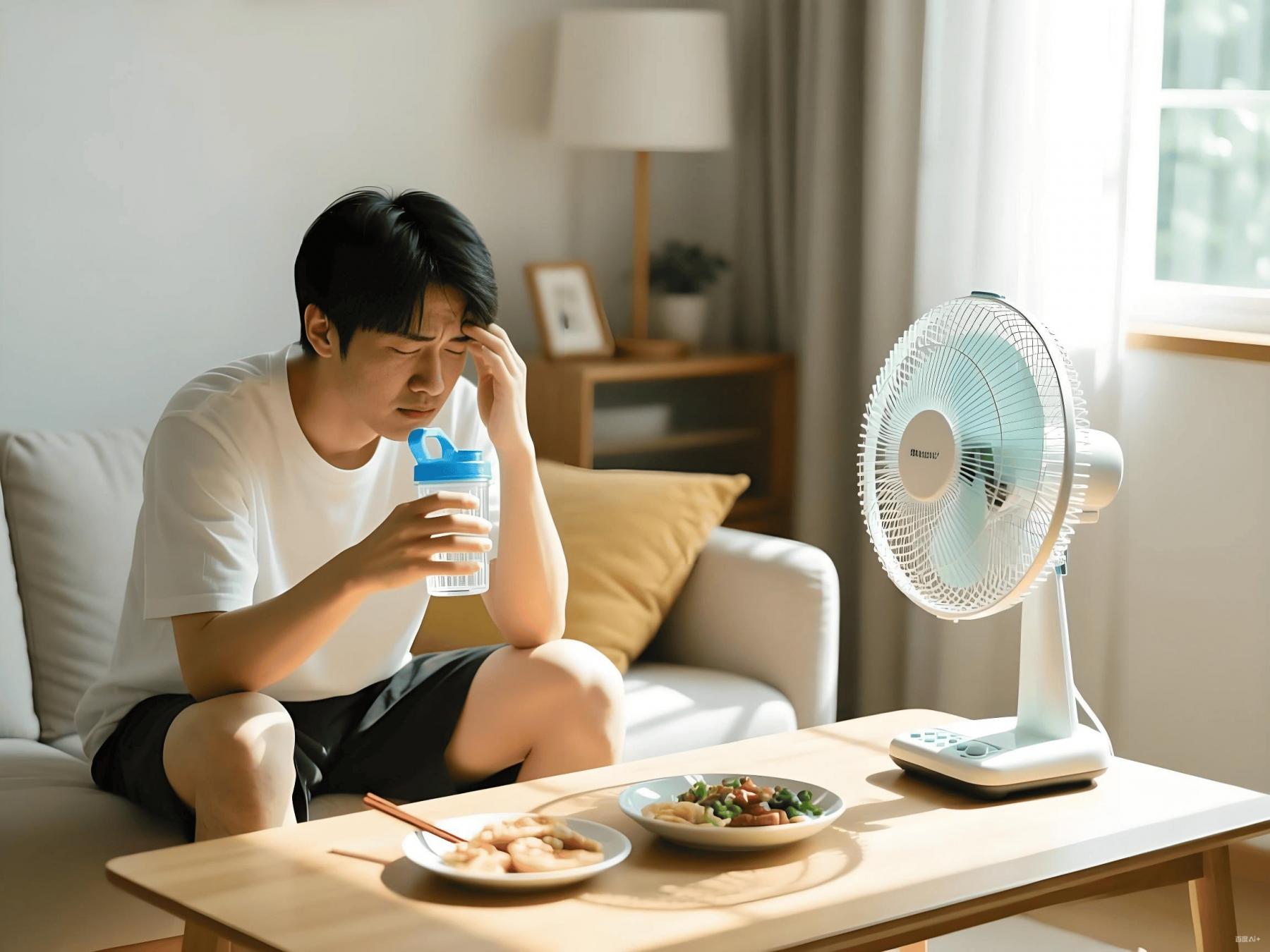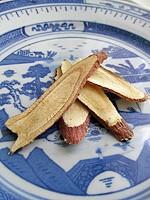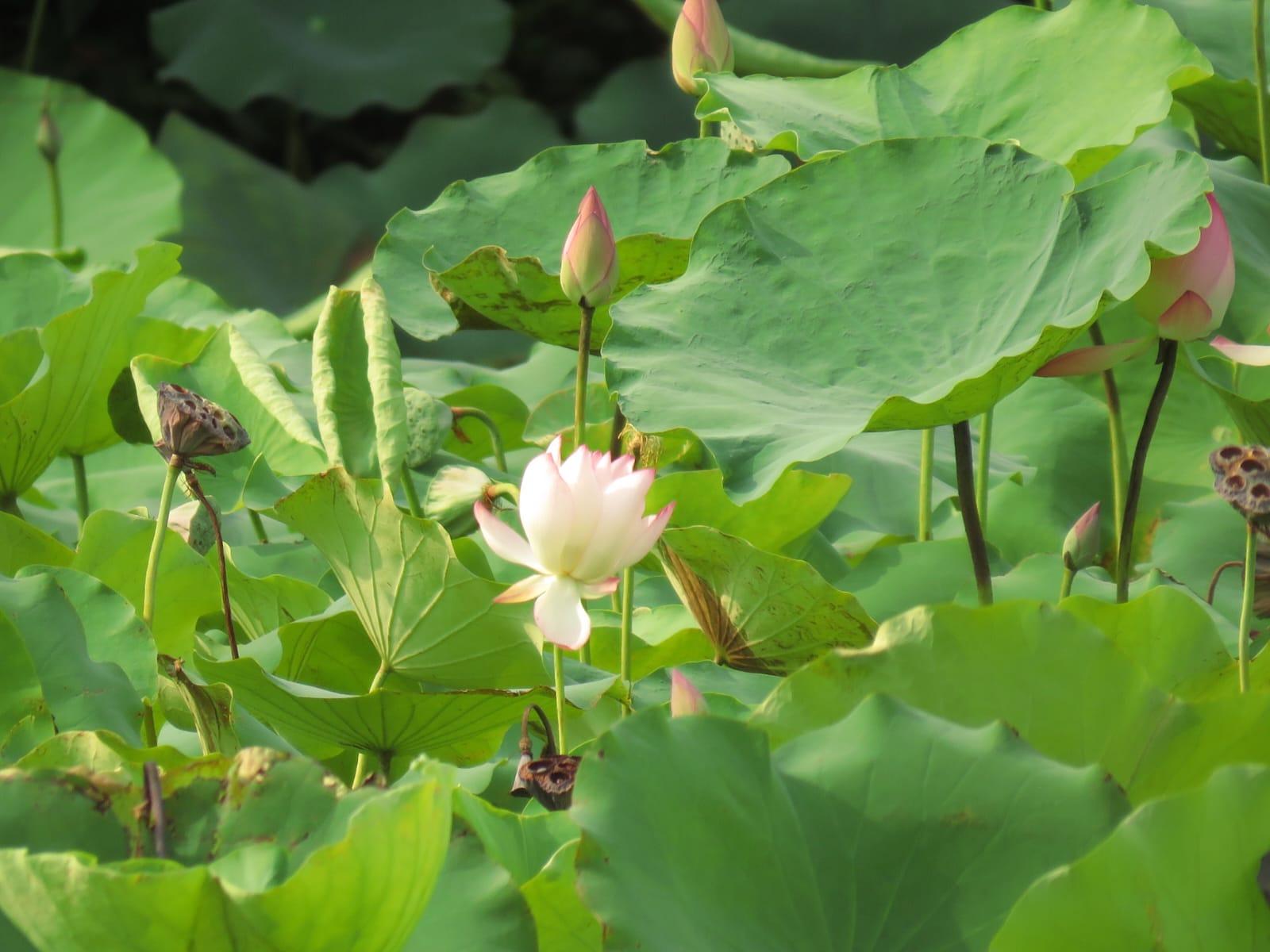Ancient people believed that humans should live in harmony with nature and are fundamentally dependent on the balance of all things in the universe. Human growth and development were seen as following the rhythms of the four seasons. In other words, the weather and climiate of each season are closely linked to physiological changes within the body.

Under normal circumstances, climatic factors do not cause illness, as the body's inherent defense and regulatory systems can adapt to them. However, when environmental changes become too extreme or the body is too weak to adjust, these otherwise neutral factors can transform into pathogenic influences. In Traditional Chinese Medicine (TCM), these pathogenic climatic influences are collectively known as the “
six exogenous evils”, which are wind, cold, summer-heat, dampness, dryness, and fire.
Summer-heat is a dominant exogenous pathogen (or evil) in summer season. When summer-heat invades the body as an exogenous pathogenic factor, it can lead to a range of heat-related illnesses. Here are the typical clinical features associated with summer-heat invasion:
- Summer-heat is a pure yang pathogen: summer-heat leads to intense heat signs such as high fever, flushed face, thirst, red eyes, irritability, and a rapid and surging pulse.
- Summer-heat pathogen has an ascending and dispersing nature: the pathogen tends to affect the head and upper body. It also causes skin pores to open and leads to excessive sweating.
- Summer-heat pathogen consumes qi (vital energy) and body fluids: as sweat escapes, it carries away both qi (vital energy) and body fluids, resulting in a dual deficiency. This manifests as heavy sweating, fatigue, weakness, shortness of breath, dry mouth and tongue, dark and scanty urine, and dehydration.
- Summer-heat pathogen disturbs the spirit or heart functioning easily: In the Five Elements theory, summer corresponds to the fire element and is associated with the heart organ. When summer-heat invades the body, it can generate heart fire and easily irritate the spirit, leading to irritability, restlessness, and even sudden fainting or loss of consciousness (heatstroke).
- Summer-heat pathogen induces liver wind: when summer-heat depletes the body’s qi and fluids, it can lead to a state of yin deficiency. Without sufficient yin to balance the body’s yang, liver yang may become hyperactive and, in severe cases, transform into internal liver wind. This disturbance can result in symptoms such as headache, dizziness, limb cramps, and neck stiffness.
- Summer-heat pathogen often carries dampness to attack: hot summer weather often brings high humidity, making people more vulnerable to dampness invasion, which can lead to damp-heat conditions. Therefore, besides the typical heat symptoms, individuals may experience heavy limbs, chest tightness, nausea, loose stools, scanty urine, and a thick, greasy tongue coating, signs of dampness obstructed internally.
- Summer-heat attacks lead to sudden and intense symptoms: this refers to acute conditions such as heatstroke or infectious diseases like dengue fever and encephalitis, which require prompt medical attention.
Generally speaking, TCM holds that summer-heat can lead to a variety of health problems, with symptoms varying significantly among individuals. Based on specific manifestations and severity, TCM classifies these conditions into distinct patterns, such as
summer-heat injury (shang shu), heatstroke (
zhong shu), heat fainting (
shu jue), heat convulsion (
shu feng), summer malaise (
shu xia), and summer fever in children. These classifications reflect TCM’s subtle approach to diagnosing and treating heat-related illnesses, that consider not only symptoms but also the overall health and environmental factors. Without proper treatment, these conditions can progress rapidly and, in severe cases, become life-threatening.
As for wellness practices in summer, the core principles include:
- Nourish the heart: keeping a calm and peaceful mind, avoiding excessive emotional stimulation, and ensuring adequate rest to protect the spirit.
- Clear heat or dissipate summer-heat: taking more cooling foods and drinks to counteract the external heat.
- Replenish qi and nourish yin: for replenishing fluids and energy lost through sweating.
Lotus flower, leaf, seed, root and even seedpod are common ingredients for conteracting summer-heat.





